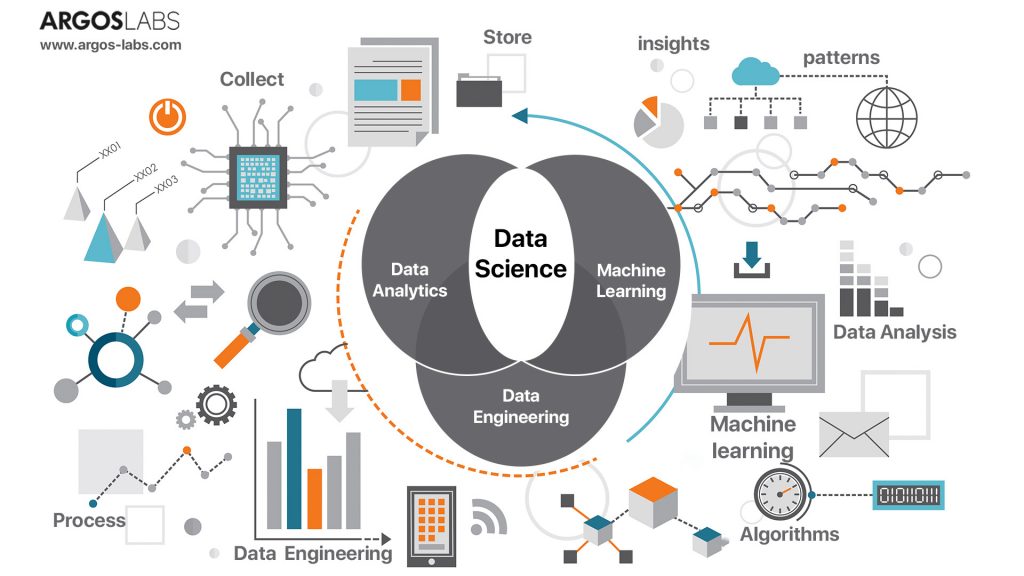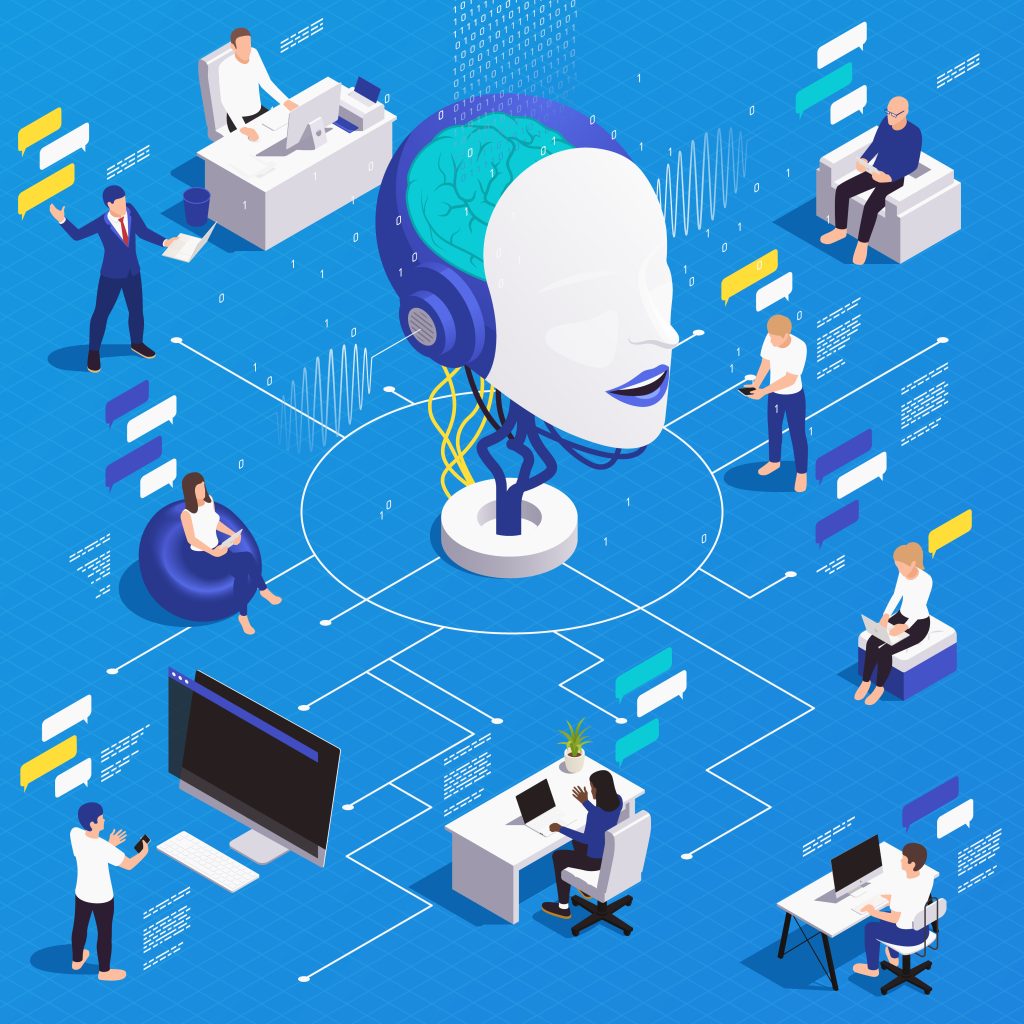
Imagine having a crystal ball that could predict the future of your business. While that might be a bit of a stretch, data science comes pretty close.
What is data science?
It’s like a super-powered detective that helps businesses find hidden clues and patterns within huge piles of information. This information can be anything from customer feedback to sales numbers.
Why is it important?
In today’s world, businesses are drowning in data. Data science helps turn this data into useful insights that can make a big difference. For example, a store can use data science to figure out which products are selling the best and when customers are most likely to buy them. This helps them stock the right items and avoid wasting money.
How does it work?
Data scientists use special tools and techniques to analyze data. They look for trends, patterns, and relationships. This helps them make predictions about the future. For instance, a bank might use data science to predict which customers are likely to default on a loan.
So, what are the benefits?
Better decision-making
Data science helps businesses make informed decisions based on facts, not just guesses.
Increased efficiency
By automating tasks and identifying problems early, data science can help businesses save time and money.
Competitive advantage
Businesses that use data science effectively can gain a significant edge over their competitors.
Enhancing Decision Accuracy
The core strength of data science lies in its ability to extract patterns, relationships, and insights from large datasets. With the help of advanced statistical models, machine learning algorithms, and data mining techniques, data science enables businesses to go beyond surface-level understanding. This approach leads to data-backed decisions rather than relying on gut instinct or experience alone.
For instance, retail companies can apply data science to analyze buying patterns, seasonal trends, and customer preferences. By using predictive models, they can accurately forecast product demand, ensuring they stock the right items at the right time, improving both profitability and customer satisfaction. Similarly, financial institutions use data science to assess investment risks, analyze market conditions, and make sound decisions about asset management. This data-driven accuracy helps mitigate risk, reduce uncertainty, and promote growth.
Data-Driven Strategy: Moving Beyond Guesswork
Organizations that integrate data science into their decision-making processes can quickly adapt to market changes, giving them a competitive edge. The advantage lies in replacing guesswork and subjective judgment with insights grounded in data. In contrast to traditional decision-making methods, which may be influenced by bias or incomplete information, data science brings objective clarity, allowing organizations to pivot strategically.
For example, a company analyzing sales data might discover that certain product lines are underperforming. Rather than continuing to invest in these products, the organization can decide to discontinue them, reallocating resources to areas with higher profitability. This proactive approach is essential for businesses aiming to stay competitive in an increasingly data-driven world.
Predictive Analytics: Anticipating the Future
One of the most transformative aspects of data science is its ability to predict future trends through predictive analytics. By examining historical data and identifying patterns, predictive models offer businesses foresight into upcoming challenges and opportunities.
In marketing, predictive analytics can identify customers likely to churn, enabling businesses to implement targeted retention strategies. In manufacturing, predictive models can forecast equipment failure, allowing companies to schedule maintenance before issues arise. This not only prevents costly downtime but also ensures continuous productivity.
The ability to anticipate future events whether market fluctuations, customer behavior, or internal operations gives companies the ability to make pre-emptive decisions, preparing them for what’s to come.
Real-Time Insights for Faster Decisions
The rise of real-time data analytics has further revolutionized decision-making. With access to live dashboards and real-time data streams, decision-makers no longer need to rely on outdated reports. Instead, they can monitor performance indicators, market trends, and operational metrics in real-time. This capability allows businesses to respond immediately to emerging opportunities or threats, offering unparalleled agility.
Take, for example, a company monitoring its supply chain. By analyzing live data, it can quickly spot bottlenecks or inefficiencies and take corrective action before they impact customer satisfaction. In competitive industries, being able to make swift, informed decisions is a key differentiator between leaders and laggards.
Reducing Bias and Improving Objectivity
Human decision-making is often influenced by cognitive bias overconfidence, availability bias, or emotional responses clouding judgment. Data science minimizes the influence of these biases by focusing on objective, empirical evidence. By relying on data rather than opinions, businesses can approach decision-making with a clearer perspective, reducing the risk of costly mistakes.
For instance, hiring decisions influenced by unconscious bias can lead to a lack of diversity and missed opportunities. Data science can provide a more objective evaluation of candidates based on their skills, experiences, and suitability for the role, ensuring that organizations make more equitable and effective choices.
Conclusion: The Future of Decision Making
As the business landscape continues to evolve, data science will play an increasingly central role in shaping decisions. The ability to transform raw data into actionable insights allows organizations to operate with greater accuracy, efficiency, and foresight. Data science not only enhances decision-making by providing a factual basis for strategy but also drives innovation, enabling companies to explore new opportunities and stay ahead of their competitors.
In a world where data is the new currency, businesses that invest in data science are positioning themselves for long-term success. By embracing a data-driven approach, organizations can make smarter decisions, mitigate risks, and unlock new avenues for growth, ensuring they remain agile and competitive in an ever-changing environment.
Argos Labs can help organizations make these crucial innovation steps, delivering efficiency and accuracy.
For more information or advice on getting started write to us info@argos-labs.com.


